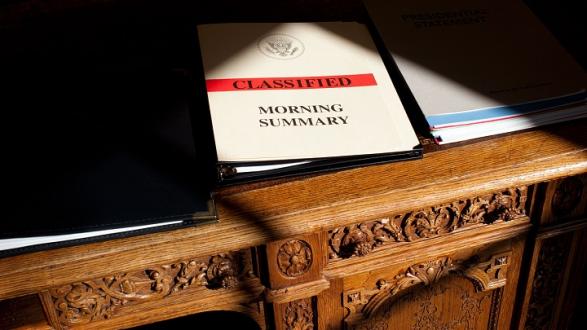In:
From Chinese and Russian assertiveness to the various states of turmoil and instability in the Middle East, the 45th U.S. president will inherit a tumultuous state of world affairs.
Certain issues, such as climate change or nuclear nonproliferation, lend themselves to international cooperation and can bolster U.S. global leadership. Others, like cybersecurity or armed conflict, may undermine it.
Looking ahead to 2016, what should rank at the top of the next U.S. president’s list of foreign policy priorities?
The Big Issues (or Some of Them)
- Chinese power projections – including the creation of artificial islands – in the South China Sea, coupled with the new mandate of the Japanese military, threaten to upset the traditional balance of power in the Asia-Pacific region and spark conflict. The United States re-opened a naval base in the Philippines in July 2015 to signal commitment to U.S. allies and to security in Southeast Asia.
- As the world’s two largest emitters of greenhouse gasses, the United States and China are actively taking on climate change as a foreign policy priority. On November 12, 2014, Presidents Barack Obama and Xi Jinping issued the historic U.S.-China Joint Announcement on Climate Change. The resulting initiatives included collaboration on renewable energy technologies and overall reduction in greenhouse emissions. On September 25, 2015, the two presidents announced additional initiatives to strengthen the initial climate deal.
- Washington has taken a multilateral approach to international terrorism and radicalism in recent years. The U.S. and India now collaborate based on a Joint Declaration on Combatting Terrorism, which entails counterterrorism intelligence-sharing and joint operations against radical terrorist organizations. U.S. and Russian counterterrorism strategies, however, starkly differ, as demonstrated by the recent Russian airstrikes against ISIL and rebel bases in Syria.
- Poverty and extreme hunger continue to plague populations around the world. On October 4, 2015, the World Bank forecasted a decline in global poverty to under 10% of the world population by the end of 2015. The world may be moving closer toward achieving the UN top agenda goal to end extreme poverty by 2030.
Looking Ahead: Members Weekend 2015
Ms. Dina Smeltz, Senior Fellow for Public Opinion and Foreign Policy at the Chicago Council on Global Affairs, will lead a working group discussion on this issue at Members Weekend 2015. She will be joined by Mr. Michael Camuñez, President and CEO of ManattJones Global Strategies; Mr. Justin Connolly, Director of the California Committee South at Human Rights Watch; Dr. Mark Vlasic, Senior Fellow of the Institute for Law, Science & Global Security and Adjunct Professor of Law at Georgetown University; and Dr. Geoffrey Wiseman, Professor of the Practice of International Relations at USC.
Stay tuned for the results of that session.
Meanwhile, share your own opinion on social media: what foreign policy issues should the next U.S. president prioritize? Tweet at us @PacCouncil: you can follow along and join the conversation on October 9 and 10 using #membersweekend.




